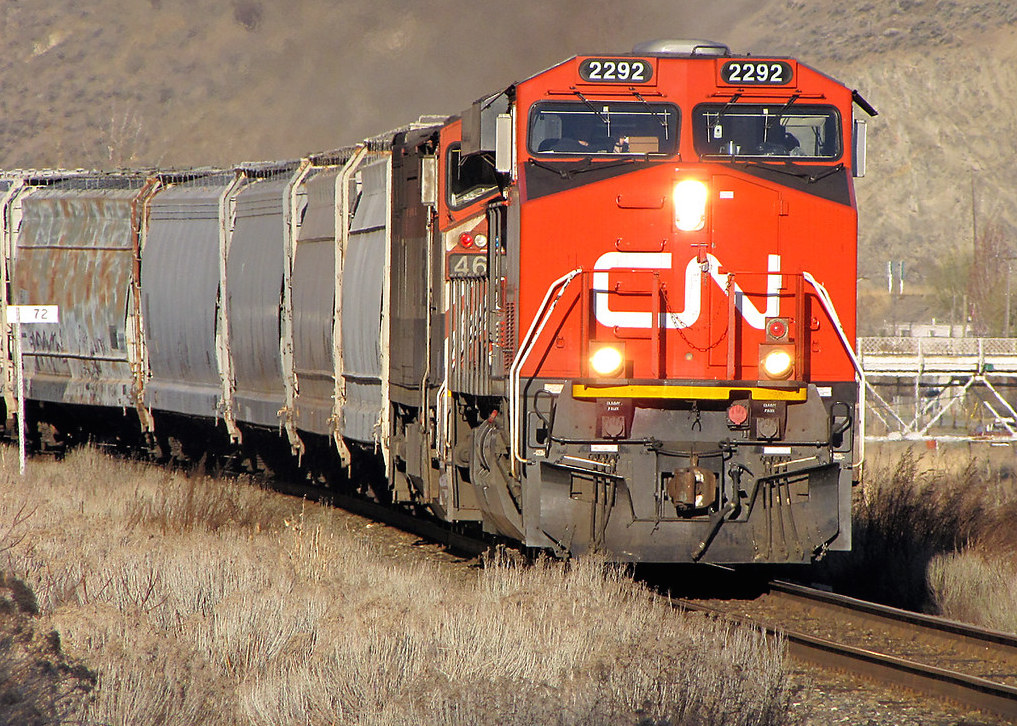Now that a tentative agreement in the national strike by 3,200 CN yard workers and train crew members has been reached in collective bargaining as God and the Canada Industrial Relations Board both intended, you’d think the Conservative politicians who were screeching for Ottawa to intervene and order the strikers back to work would be embarrassed.
They ought to be, of course. But if you thought they would be, you’d be mistaken. Leastways, they’ll never admit it.
Naturally, a few will try to pretend serious damage was done to the Canadian economy by the week-long strike, and that it’s all Justin Trudeau’s fault for not ordering the members of the Teamsters Canada Rail Conference back to work after a few hours as Stephen Harper would have done.
As our prime minister seemed to appreciate, though, that would have derailed the entire collective bargaining process — as Canadian National Railway’s executives obviously hoped would happen whether or not they ginned up the propane shortage in Quebec that momentarily united Quebec Premier François Legault and his Alberta counterpart Jason Kenney as unlikely allies.
Remember, collective bargaining is not just a legal process. No matter how much the corporate bosses and their political and journalistic toadies hate it — and, boy, do they ever — participating in collective bargaining is a matter of all Canadians’ fundamental right to freedom of association, enshrined in our Canadian Charter of Rights and Freedoms. Don’t take my word for it. Just ask the Supreme Court of Canada!
So, thank goodness, the governing Liberals at least choose to respect those rights, and the result seems to be positive.
Collective bargaining offered a more practical solution than legislation. As Marc Garneau, the federal transportation minister, sensibly pointed out at a news conference yesterday: “Had we taken an approach like the previous government of deciding to legislate back to work, we would not have a solution today.”
“As quickly as we would have decided to convene Parliament, with everything that needs to be done to arrive at Royal Assent for a piece of legislation, we still would not have an agreement today,” he explained, sounding patient. “Because of the approach that we took … we do have a solution today, and better still, the two sides sat down and mutually agreed to a solution. And that is always a better approach than to use forced legislation.”
Of course, most of the Conservatives who were screaming about the CN strikers last week will go as quiet as a bed of clams now that it’s obvious the legal strike process worked as such activities are supposed to in labour relations, concentrating the minds of both parties on the compromise necessary to reach a new contract.
In this case, that should have been easy, since the fundamental issue in the strike wasn’t money, but workplace safety. Although, to be truthful, safe workplaces cost money, and it sure sounded as if CN’s bosses would rather kill off a few more workers than pay to keep them safe. Especially so, since they obviously hoped they could use the economic consequences of the strike to get the federal government to order the strikers back to work on management’s terms.
Anyway, within a few hours Canada’s Conservatives will be howling about some completely different outrage for which Trudeau is supposedly responsible. Better to torque up a new crisis while you look for a new leader, I guess, than admit that the last two likely candidates you found, Andrew Scheer and Maxime Bernier, turned out to be duds.
One can feel some sympathy for the farmers caught in the crossfire of the dispute, but with the trains starting to get back to normal last night and this morning, they too can return to their normal complaints, say, blaming Trudeau for China’s willingness to play hardball with us for arresting one of their executives on Trumped-up American charges.
Modern Republicanized Canadian Conservatives have no credibility on labour issues for the simple reason they don’t believe labour relations should be anything more than a master-slave relationship.
Once upon a time there were influential conservatives like prime minister Brian Mulroney, a labour negotiator himself, who both understood the process and appreciated that it had benefits for society. One of the key benefits is the role strong unions play in keeping income inequality from reaching feudal levels and allowing working families to be part of the now-shrinking Canadian middle class.
In other words, some old-timey Conservatives understood what’s obvious to the rest of us, that a strong union movement is essential to a strong middle class.
It’s pretty easy to understand why. As Nobel Prize-winning economist Paul Krugman has explained, “unions negotiated good wages and benefits for their workers, gains that often ended up being matched even by non-union employers. They also provided an important counterbalance to the political influence of corporations and the economic elite.”
Alas, following the lead of their Republican brethren south of the 49th parallel, such Conservatives don’t really exist any more in Canada. At least not in leadership positions in their parties.
Premier Kenney, sad to say, is the very model of the modern Canadian Conservative, dreaming of becoming Canada’s answer to Scott Walker, the union-hating former governor of Wisconsin. I wouldn’t even be surprised to learn he’s praying for the Teamsters not to ratify the deal, so he can resume yelling at Trudeau about it.
So don’t look for any Conservative to confess they were wrong about the CN rail strike. Admitting error — even when it’s blatantly obvious, as in this case — is just not in their political DNA.
David Climenhaga, author of the Alberta Diary blog, is a journalist, author, journalism teacher, poet and trade union communicator who has worked in senior writing and editing positions at The Globe and Mail and the Calgary Herald. This post also appears on David Climenhaga’s blog, AlbertaPolitics.ca.
Image: Mick Hall/Flickr




